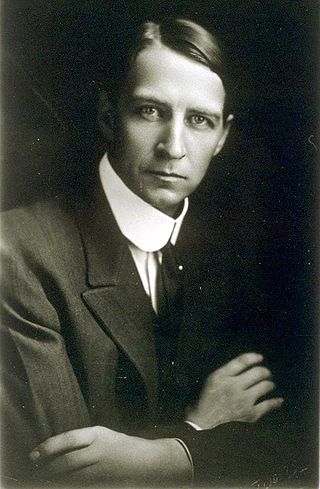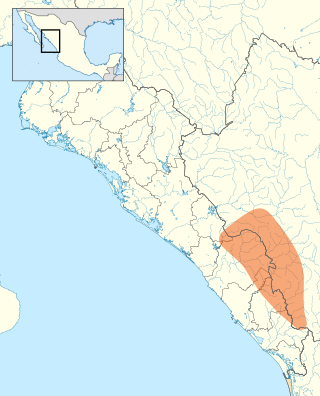
During the Age of Discovery, a large scale colonization of the Americas, involving a number of European empires, took place between around 1492 and 1800. The Norse had explored and colonized areas of Europe and the North Atlantic, colonizing Greenland and creating a short term settlement near the northern tip of Newfoundland circa 1000 CE. However, the later colonization by the European powers involving the continents of North America and South America is arguably more well-known.

The Spanish colonization of the Americas began in 1493 on the Caribbean island of Hispaniola after the initial 1492 voyage of Genoese mariner Christopher Columbus under license from the Queen Isabella I of Castile. These overseas territories of the Spanish Empire were under the jurisdiction of Crown of Castile until the last territory was lost in 1898. Spaniards saw the dense populations of indigenous peoples as an important economic resource and the territory claimed as potentially producing great wealth for individual Spaniards and the crown. Religion played an important role in the Spanish conquest and incorporation of indigenous peoples, bringing them into the Catholic Church peacefully or by force. The crown created civil and religious structures to administer the vast territory. Spanish colonists settled in greatest numbers where there were dense indigenous populations and the existence of valuable resources for extraction.

The term Latin America primarily refers to the Spanish- and Portuguese-speaking countries in the New World.
The Spanish reconquest of New Granada in 1815–1816 was part of the Spanish American wars of independence in South America. Shortly after the Napoleonic Wars ended, Ferdinand VII, recently restored to the throne in Spain, decided to send military forces to retake most of the northern South American colonies, which had established autonomous juntas and independent states. The invaders, with support from loyal colonial troops, completed the reconquest of New Granada by taking Bogotá on May 6, 1816.
Felipe Fernández-Armesto is a British professor of history and author of several popular works, notably on cultural and environmental history.
Kris Eugene Lane is a Canadian–American Fulbright scholar, researcher, professor, and author. His areas of academic teaching and research focus on colonial Latin American history. He has written and edited several books and articles on slavery, witchcraft, headhunting, mining, human trafficking, and piracy in the Caribbean.
Sir John Huxtable Elliott was a British historian and Hispanist who was Regius Professor Emeritus at the University of Oxford and honorary fellow of Oriel College, Oxford, and Trinity College, Cambridge. He published under the name J. H. Elliott.

Herbert Eugene Bolton was an American historian who pioneered the study of the Spanish-American borderlands and was a prominent authority on Spanish American history. He originated what became known as the Bolton Theory of the history of the Americas which holds that it is impossible to study the history of the United States in isolation from the histories of other American nations, and wrote or co-authored ninety-four works. A student of Frederick Jackson Turner, Bolton disagreed with his mentor's Frontier theory and argued that the history of the Americas is best understood by taking a holistic view and trying to understand the ways that the different colonial and precolonial contexts have interacted to produce the modern United States. The height of his career was spent at the University of California, Berkeley where he served as chair of the history department for twenty-two years and is widely credited with making the renowned Bancroft Library the preeminent research center it is today.
Ida Louise Altman is an American historian of early modern Spain and Latin America. Her book Emigrants and Society: Extremadura and Spanish America in the Sixteenth Century received the 1990 Herbert E. Bolton Prize of the Conference on Latin American History. She is Professor Emerita of History at the University of Florida and served as Department Chair.

The New Kingdom of Granada, or Kingdom of the New Granada, was the name given to a group of 16th-century Spanish colonial provinces in northern South America governed by the president of the Royal Audience of Santafé, an area corresponding mainly to modern-day Colombia. The conquistadors originally organized it as a province with a Royal Audience within the Viceroyalty of Peru despite certain independence from it. The audiencia was established by the crown in 1549. Ultimately the kingdom became the Viceroyalty of New Granada first in 1717 and permanently in 1739. After several attempts to set up independent states in the 1810s, the kingdom and the viceroyalty ceased to exist altogether in 1819 with the establishment of the United Provinces of New Granada.
Patricia Seed is an American historian and professor in the University of California, Irvine's Department of History. She specializes in the history of cartography and navigation, and is the foremost authority on latitude as it relates to the historical use of maps in maritime exploration.
Jorge Cañizares-Esguerra is a faculty member in the history department at the University of Texas at Austin, where he holds the Alice Drysdale Sheffield Professorship in History. He is most notable for his work in Atlantic history, the history of science in the early modern Spanish empire, and the colonizing ideologies of the Iberian and British empires. The core of his intellectual project has been to demonstrate the deep formative role of Latin America both to the colonial history of the U.S. and to the history of Western modernity as a whole. While Latin America does appear in the histories of slavery, globalization, and capitalism, Canizares-Esguerra goes beyond these narratives and introduces the region as the cradle of modern science, abolitionism, republicanism, and democracy.
Alexandra Marie Walsham is an English-Australian academic historian. She specialises in early modern Britain and in the impact of the Protestant and Catholic reformations. Since 2010, she has been Professor of Modern History at the University of Cambridge and a Fellow of Trinity College, Cambridge. She is co-editor of Past & Present and Vice-President of the Royal Historical Society.

David Anthony Brading FRHistS, FBA, is a British historian and Professor Emeritus of Mexican History at the University of Cambridge, where he is an Emeritus Fellow of Clare Hall and an Honorary Fellow of Pembroke College. His work has been recognized with multiple awards including the Bolton Prize in 1972, the Order of the Aztec Eagle, and the Medalla 1808—both of which were awarded by the Mexican government—and the Medal of Congress from the Peruvian government in 2011.
Conference on Latin American History, (CLAH), founded in 1926, is the professional organization of Latin American historians affiliated with the American Historical Association. It publishes the journal The Hispanic American Historical Review.
John Leddy Phelan was a scholar of colonial Spanish America and the Philippines. He spent the bulk of his scholarly career at the University of Wisconsin, Madison. Following his death, his notable former graduate student, James Lockhart, wrote a candid obituary of his mentor.
Ann Twinam is an American historian of colonial Latin America.
The British Academy presents 18 awards and medals to recognise achievement in the humanities and social sciences.
Peter Marshall is a Scottish historian and academic, known for his work on the Reformation and its impact on the British Isles and Europe. He is Professor of History at the University of Warwick.

The Xixime were an indigenous people who inhabited a portion of the Sierra Madre Occidental mountains in the present day states of Durango and Sinaloa, Mexico. The Xixime are noted for their reported practice of cannibalism and resistance to Spanish colonization in the form of the Xixime Rebellion of 1610.






